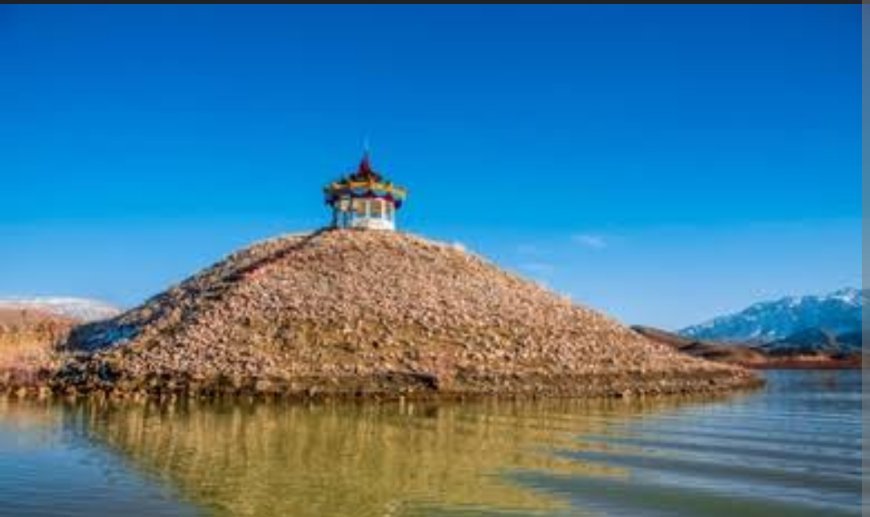Why Water Shortages in Quetta City and Its Solutions / reasons
Water Shortages in Quetta City and Its Solutions
Water Shortages in Quetta City and Its Solutions
Quetta, the capital of Balochistan province in Pakistan, is grappling with severe water shortages that have become a critical issue for its residents. This city, nestled in a valley surrounded by mountains, is facing a dire water crisis that threatens the well-being and livelihoods of its people. The shortage of water in Quetta is a multifaceted problem resulting from various factors, including rapid urbanisation, climate change, mismanagement of resources, and an over-reliance on groundwater. Addressing this crisis requires a comprehensive and sustainable approach to ensure a secure water future for Quetta.
Causes of Water Shortages in Quetta
One of the primary reasons for the water shortages in Quetta is the over-extraction of groundwater. The city heavily relies on underground aquifers for its water supply. However, excessive pumping has led to a significant drop in the water table, making it increasingly difficult to access fresh water. This over-extraction is compounded by a lack of regulation and monitoring, allowing private and commercial entities to deplete the resource unchecked.
Climate change is another critical factor contributing to the water crisis. Quetta has experienced irregular rainfall patterns and prolonged droughts, which have reduced surface water availability and further strained groundwater reserves. The changing climate has also affected the recharge rates of aquifers, exacerbating the already declining water levels.
Rapid urbanisation and population growth have placed additional pressure on Quetta’s water resources. The city's infrastructure has not kept pace with its expanding population, leading to increased demand for water in households, industries, and agriculture. This surge in demand has outstripped the supply, resulting in acute water shortages.
Moreover, the mismanagement and inefficient use of water resources have aggravated the situation. Poor maintenance of water supply infrastructure, leakage, and wastage are rampant, leading to significant losses of precious water. The lack of public awareness and education about water conservation further exacerbates the problem.
Potential Solutions
Addressing the water shortages in Quetta requires a multi-pronged approach that includes both short-term measures and long-term strategies. Here are some potential solutions:
1. Sustainable Groundwater Management:
Implementing strict regulations and monitoring systems to control groundwater extraction is crucial. Establishing a legal framework that limits the amount of water that can be pumped and ensuring compliance through regular inspections can help prevent over-extraction. Additionally, promoting rainwater harvesting and artificial recharge techniques can help replenish the depleted aquifers.
2. Improving Water Infrastructure:
Investing in the maintenance and upgrading of existing water supply infrastructure is essential to reduce losses and improve efficiency. Repairing leaks, replacing old pipelines, and modernising distribution systems can ensure that more water reaches the end users. The introduction of smart water management systems, including sensors and real-time monitoring, can help identify and address issues promptly.
3. Promoting Water Conservation:
Raising public awareness about the importance of water conservation is vital for sustainable water management. Educational campaigns, community workshops, and school programs can teach residents about efficient water use practices. Encouraging the use of water-saving devices, such as low-flow taps and toilets, can also significantly reduce household water consumption.
4. Diversifying Water Sources:
To reduce reliance on groundwater, exploring alternative water sources is crucial. Developing surface water resources, such as dams and reservoirs, can provide a more sustainable supply of water. Additionally, treating and reusing wastewater for non-potable purposes, such as irrigation and industrial use, can alleviate pressure on freshwater resources.
5. Implementing Integrated Water Resource Management (IWRM):
Adopting an integrated approach to water resource management involves coordinating the development and management of water, land, and related resources. IWRM promotes the equitable and sustainable use of water resources by considering the interconnectedness of various factors. Establishing a centralised water authority that oversees all aspects of water management can ensure better planning, implementation, and monitoring of water-related initiatives.
6. Climate Resilience Measures:
Implementing measures to mitigate the impacts of climate change on water resources is essential. This includes developing infrastructure to capture and store rainwater, such as rainwater harvesting systems and small dams. Enhancing the city's ability to manage extreme weather events, such as droughts and floods, through improved forecasting and preparedness can also help safeguard water supplies.
Ending
The water shortages in Quetta City are a pressing issue that requires immediate and sustained action. By implementing a combination of regulatory measures, infrastructure improvements, public awareness campaigns, and alternative water sources, Quetta can move towards a more secure and sustainable water future. The solutions must be holistic, inclusive, and adaptive to ensure that the city’s water needs are met while preserving this precious resource for future generations.
What's Your Reaction?








